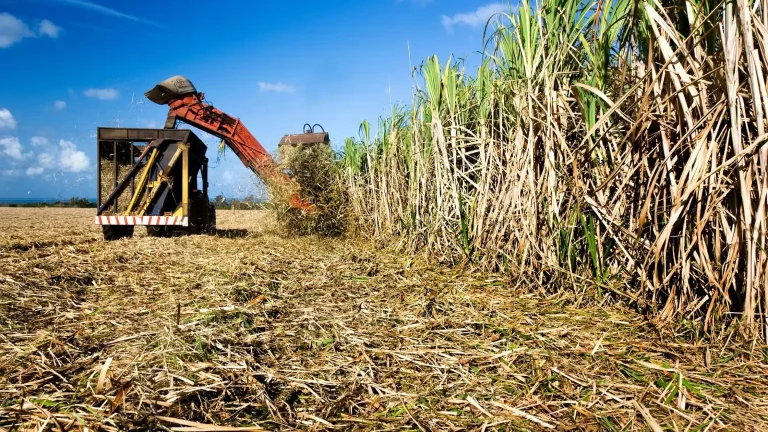
Despite numerous measures taken by the government to assist the sugar industry, the challenges of the Mauritian sugar sector remain significant. These challenges prevent the industry from generating new economic value without increasing production costs. The primary issues include a shortage of labor, ongoing abandonment of land previously used for sugarcane cultivation, and insufficient water for both industrial and agricultural needs.
Amidst these difficulties, fluctuating selling prices in international markets compel the Mauritian sugar sector to enhance productivity and generate new economic value. This question emerged during the annual general meeting of the Mauritius Sugar Syndicate on September 19 at the Labourdonnais Hotel.
Ministerial Perspectives on Productivity
Mahen Seeruttun, the Minister of Agro-Industry and Food Security, emphasized the potential for improvement. He urged all stakeholders involved in sugar production to work diligently toward increasing productivity, calling it an essential objective.
A Possible Mission
Although challenges like fluctuating international prices and the decline in land dedicated to sugarcane cultivation persist, Minister Seeruttun believes that enhancing productivity is achievable. He pointed to government interventions aimed at revitalizing a struggling sector. These measures, outlined in the Budget 2024-25, seek to create conditions that allow the sugar industry to overcome its current difficulties.
Among the initiatives mentioned, the government plans to provide growers with an 80% advance on the sale of their sugar for the 2024 harvest, based on the Mauritius Sugar Syndicate’s price estimates. This initiative, developed in collaboration with the Mauritius Cane Industry Authority, focuses on research, development, and innovation to boost production and productivity at both farm and factory levels.
The government allocated Rs 75 million under the Cane Replantation Scheme to support small and medium plantation owners in reviving sugarcane cultivation on abandoned lands. This effort aims to restore approximately 1,250 acres of land to sugar production. Furthermore, the government committed Rs 1.1 billion to enable the National Business Framework’s activities, targeting a shift from coal-based electricity production to renewable sources by 2030, which will supply 60% of the country’s electricity needs.
Ensuring Fair Returns for Producers
Another critical measure involves utilizing the National Resilience Fund to guarantee fair compensation for bagasse producers at Rs 3.50 per kWh, equating to Rs 3,000 per ton of sugar. Additionally, a preferential loan of Rs 500 million will support the return of about 7,000 acres of land to sugarcane cultivation.
Addressing Structural Constraints
Numerous initiatives aim to revitalize sugar production on existing sugarcane fields. The goal is to enable producers to generate new economic value and enhance the competitiveness of Mauritian sugar.
Fabien de Marase Esnouf, the outgoing president of the Mauritius Sugar Syndicate, identified two key issues related to productivity: fair compensation for sugarcane by-products, such as bagasse and biomass. He believes that the commercialization of these by-products can help producers mitigate the effects of fluctuating sugar prices on international markets. Consequently, stakeholders need to adjust the pricing of bagasse and biomass regularly to reflect fossil fuel market prices.
Esnouf highlighted three primary challenges that hinder the sugar industry from seizing new economic opportunities: a shortage of labor, a continued decline in sugarcane land, and water scarcity. He considers labor shortages the industry’s most pressing issue. While some measures are proposed to address this problem, their implementation remains slow.
A Path Forward
Efforts to amend the Workers’ Rights Act should facilitate more flexible hiring of foreign workers while safeguarding the interests of local producers despite fluctuating annual income. It is essential to move from intention to action on this front.
The ongoing decline in land dedicated to sugarcane cultivation remains a structural problem, despite potential revenue opportunities. Estimates suggest that about 10,000 hectares of land have not been used for sugarcane cultivation for years. This lost land could have generated approximately Rs 2 billion in revenue for the 2023 harvest. Returning this land to sugarcane production would not only increase producer revenues but also enhance the competitiveness of the sugar sector and empower the Mauritius Sugar Syndicate to negotiate better prices for Mauritian sugar.
Additionally, Esnouf pointed to water scarcity as a critical issue affecting industrial and agricultural needs. The renewal of the Central Water Authority’s Dry Season Regulation over the past two years, along with new irrigation water quotas, has negatively impacted the sugar industry. Producers seek to participate in developing a sustainable solution, which includes implementing a better system for storing, distributing, and managing national water resources.
Key Market Influences
Several factors have contributed to declining sugar prices in international markets. For the 2023-24 harvest, Brazil is projected to produce around 46 million tons of sugar due to favorable weather conditions and a focus on various sugar types over ethanol production.
India’s temporary decision to reduce the conversion of sugarcane juice to ethanol has led to a 20% decrease in futures contracts for sugar, potentially affecting negotiations for the 2024 harvest. The increase in white sugar exports from Ukraine to European markets rose from 20,000 tons to 430,000 tons for the 2022-23 harvest, with projections of 660,000 tons for 2023-24. This surge stems from tax-free access to EU markets granted to support Ukraine following the Russian invasion.
Mauritian sugar producers face multiple challenges. The government and industry stakeholders must work collaboratively to address these obstacles and seize new economic opportunities. By focusing on productivity enhancements, fair compensation, and sustainable practices, the sugar industry can secure its future and regain its competitiveness.


